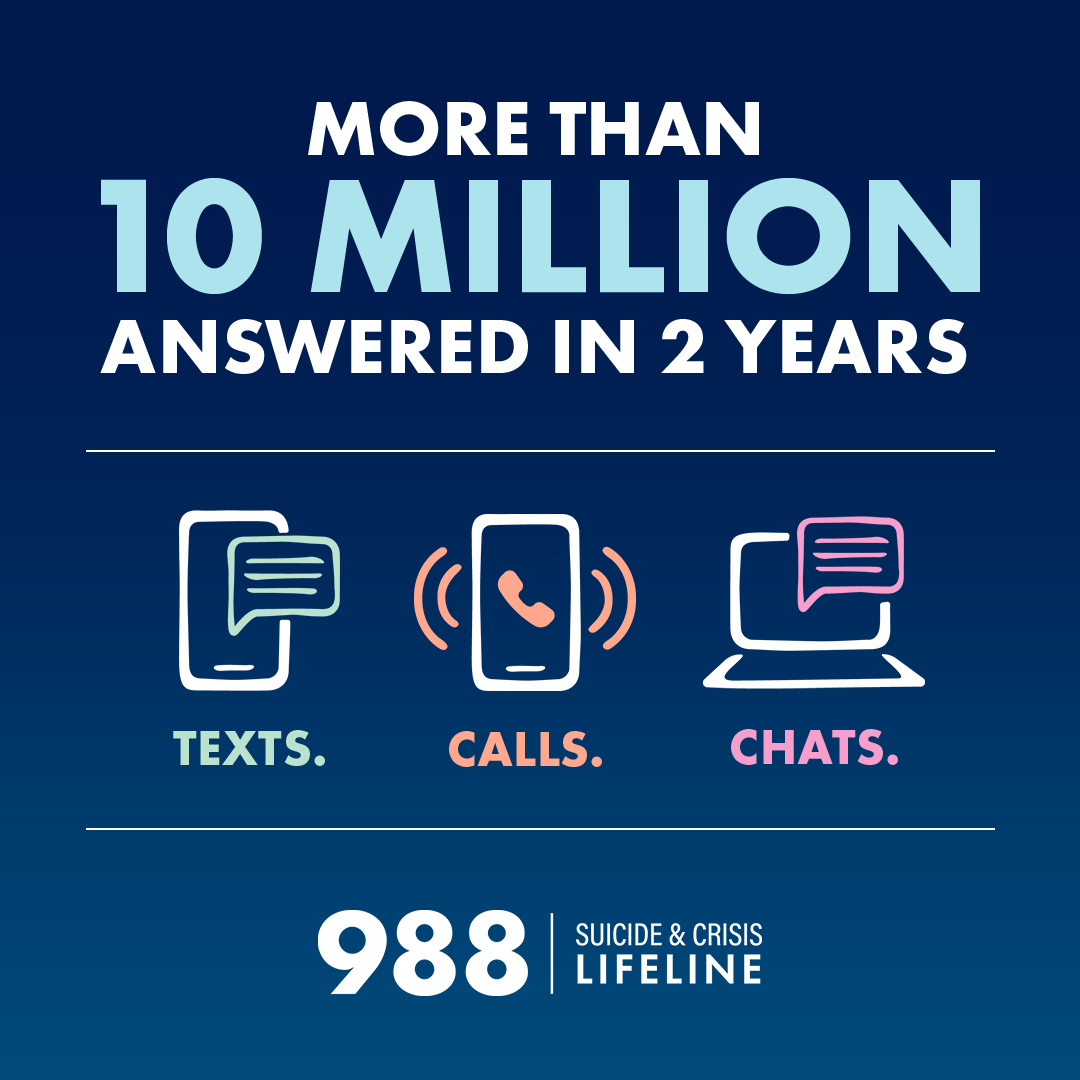Marking Two Years of 988: The Suicide and Crisis Lifeline

Two years ago, on July 16, 2022, a new, easy-to-remember, three-digit number (9-8-8) to reach the National Suicide Prevention Lifeline became available across the United States. The three-digit number provides easy access to crisis services for people with mental health and substance use issues and helps reduce the stigma surrounding these conditions. The 9-8-8 number is considered the 9-1-1 of mental health and substance use issues. The goal of 9-8-8 is to have 24/7 crisis call centers (someone to talk to), mobile crisis teams (someone to respond to crises), and crisis stabilization programs (somewhere to go).
The National Suicide Prevention Lifeline is a national network of approximately 170 local- and state-funded crisis centers. The Department of Health and Human Services’ Substance Abuse and Mental Health Services Administration administers the National Suicide Prevention Lifeline, in partnership with the Department of Veteran Affairs, which manages the Veterans Crisis Line. While federal law established the 9-8-8 number, each state needs develop and maintain the infrastructure for crisis response. The National Association of State Mental Health Program Directors (NASMHPD) has model state legislation for implementing 9-8-8 infrastructure, and APA is working in coalition with other mental health organizations to support this legislation in many states.
The 988 crisis line provides specialized responses and resources for several groups of individuals, including veterans (connecting to the Veterans Crisis Lifeline), Spanish speakers (with voice, text and chat options), LGBTQ+ (connecting with a specialized counselor by texting “PRIDE” to 988 or by pressing “3” when calling), and people using American Sign Language (using videophones to contact 988 directly). The 988 line responds to hundreds of thousands of calls each month. In May 2024, the line answered more than 485,000 calls including more than 10,000 to the Spanish subnetwork and more than 37,000 to the LGBTQ+ subnetwork. Nearly 65,000 calls were routed to the Veterans Crisis Line.
The creation of 9-8-8 for mental health (including substance use) emergencies provided a unique opportunity to reform part of the nation’s crisis system. For too long, many people who experienced crisis received an inappropriate response, from being arrested to being boarded in an emergency department for extended periods of time. This placed unnecessary burdens on people in crisis, their families, and the health and justice systems. It also deterred people from seeking services for fear of police intervention, being detained, and being stigmatized. Transforming the mental health crisis system requires many stakeholders and advocates at the local, state and federal levels working together. Work is underway in many areas to develop an equitable, sustainable crisis system.
Read More About 988
- National 988 Crisis Line One Step in Improving Mental Health Crisis Services
- Psychiatrists Have Opportunities to Help Build Crisis Systems
- After 988’s Launch, Experts Emphasize More Work Needed
- New Report Calls for Research on 988 Crisis Line Effectiveness, Caller Demographics, and More
- 988 Response Must Be Coordinated to Work Well
